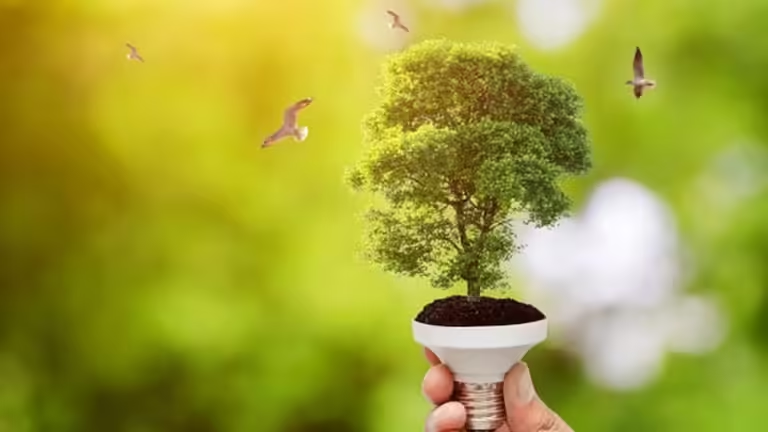India and Asean can work together to create a regional policy framework for green energy transition with increasing usage of small modular nuclear reactors, a senior official of Indian power sector regulator CERC has said.
According to Harish Dudani, Member, Central Electricity Regulatory Commission (CERC), the Asean (Association of Southeast Asian Nations) region provides a lot of opportunities for mutual cooperation to make low-carbon energy transition less disruptive.
“Asean countries, including India, are showing increasing interest in Small Modular Nuclear Reactors (SMRs) as part of their broader strategy to diversify energy sources and meet growing energy demand while reducing carbon emissions,” Dudani said at the ongoing Singapore International Energy Week.
SMRs can be deployed in smaller, more localised grids, particularly in remote or rural areas where traditional large nuclear reactors are not feasible. This could be a significant advantage for the Asean region, where regional energy access and grid infrastructure vary widely, he told PTI on Wednesday on the sidelines of the global event being held on October 21-25.
In regions where renewable energy sources such as solar and wind are dominant, SMRs can provide baseload power, helping stabilise grids by filling the gap during periods of low renewable energy generation, he explained.
SMRs, he said, offer a promising way to meet growing energy demand and reduce carbon emissions, but at the same time, ensuring their safe and secure development is critical, especially in areas with limited nuclear infrastructure and expertise.
To ensure that civilian nuclear energy development is safe and secure in Asean, several key measures must be taken, focusing on regulatory frameworks, technical standards, public engagement, and international cooperation, Dudani said.
Adopting best practices from international nuclear standards and collaborating regionally and globally will be essential to managing the risks associated with nuclear energy, he added.
He further said that long-term planning for waste management, decommissioning, and non-proliferation will be crucial for the success of SMR projects.
With a strong nuclear energy programme and ambitious climate goals, SMRs could offer Asean countries a flexible and safer way to expand its nuclear capacity, he added.
While noting that India has been increasingly expanding its bilateral electricity trade network with a number of neighbouring countries, he said countries in South Asia and Southeast Asia can significantly benefit from closer cooperation to build cross-border grid connections.
“Such connections enhance grid resilience, facilitate the efficient imports and exports of renewable energy, and contribute to regional energy security,” he said.
Dudani cited examples of the bilateral energy trade between India and its neighbours Nepal, Bhutan and Bangladesh, and said these trades are focussed mainly on meeting each other’s base energy need. However, “focus has not been on utilising resources to improve RE integration”.
“I certainly believe in fostering regional cooperation and collaboration in the development and deployment of clean energy technologies. This can include harmonizing regulatory frameworks, sharing best practices, and coordinating efforts to tackle shared challenges.
“And hence, I believe that India can work together with Asean countries to create a regional policy framework for green transition,” said the electricity industry veteran.
He also called on international capital and multilateral development banks (MDBs) to play a crucial role that makes grid investment attractive.
“They can provide direct financing through concessional loans, grants, and guarantees to support the construction and modernisation of grid infrastructure,” he suggested.
MDBs and the Indo-Pacific Economic Framework (IPEF) Clean Economy Agreement can encourage the issuance of green bonds or other sustainability-linked financial instruments specifically aimed at funding grid infrastructure that supports renewable energy, he pointed out.
Such agreements can promote financing mechanisms aimed at supporting decarbonisation efforts in Indo-Pacific countries, which will require significant upgrades to grid systems to handle renewable energy sources like solar, wind, and energy storage, he added.
Further, small-scale pilot projects can demonstrate the feasibility and profitability of new technologies and regulatory approaches, which can then be scaled up with further investment, he said, calling on multinational banks to promote such pilot projects.
“Regulators can implement a regulatory framework that rewards utilities for adopting smart meters, demand response technologies, and advanced monitoring systems that enhance grid efficiency.
“By offering regulatory certainty, incentivizing innovation, fostering partnerships, and aligning with sustainability goals, regulators can help ensure that the grid infrastructure upgrades necessary for a resilient and sustainable future are adequately financed,” he said.


